Tooth Extractions Plano
Sometimes, Removing a Tooth Is the Right Decision
A primary goal in dentistry is to preserve your natural teeth since you only get one set. However, there are circumstances of decay or disease where the best move for your oral health is to have one or multiple tooth extractions in Plano. At Antoon Family Dental, Dr. Antoon is highly qualified to keep you comfortable during the process, as he offers multiple sedation options and has more than two decades of experience. Sometimes removing a tooth is the right decision. To learn more, continue reading or contact our office for an appointment!
Why Choose Antoon Family Dental For Tooth Extractions?
- We Can See You for a Same-Day Appointment
- Sedation Available to Increase Comfort
- Dentist & Dental Team That Put Patients First
Why Are Tooth Extractions Necessary?
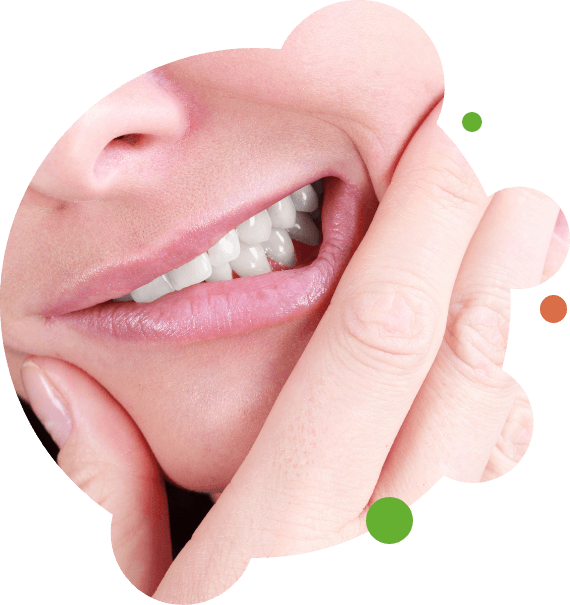
A tooth extraction will only be considered after all other options have been explored. Our priority will always be to repair your damaged tooth via restorative dentistry like a dental crown or root canal treatment. But there will be situations where tooth extractions are recommended, such as:
- Severe tooth decay
- Severe gum disease
- An impacted tooth – most commonly involves wisdom teeth
- Overcrowding – can make oral care more difficult, cause bite problems, or set the stage for impaction
- Fractured tooth
- Tooth luxation – injury to the tissues, ligaments, or bone supporting your tooth
If Dr. Antoon recommends a tooth extraction, it is important to take action, so you do not risk more severe complications in the future.
The Process of Removing a Tooth
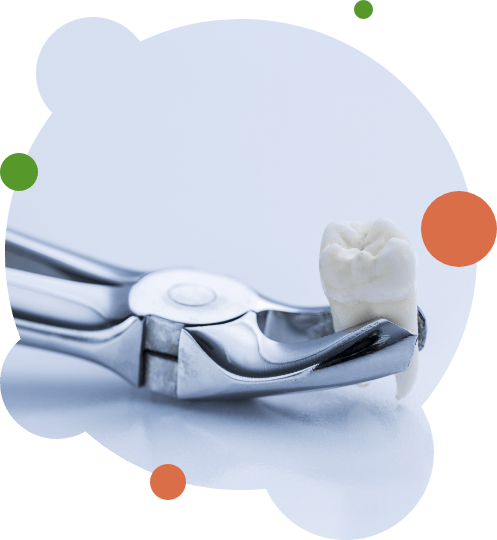
Your restorative dentist in Plano will assess your affected tooth and surrounding gums, plus take dental X-rays. You will have the option to choose between nitrous oxide and IV sedation to keep you comfortable. Next, local anesthesia will be given to numb the tooth and surrounding gum tissue.
Using specialized instruments, your dentist will gently loosen your tooth and lift it from the socket. If your tooth is badly decayed or has broken off at the gumline, it may be necessary to make incisions in the gums to access it. Once removal is complete, the socket is cleaned and disinfected. Stitches may be placed to promote healing.
Tooth Extraction Aftercare
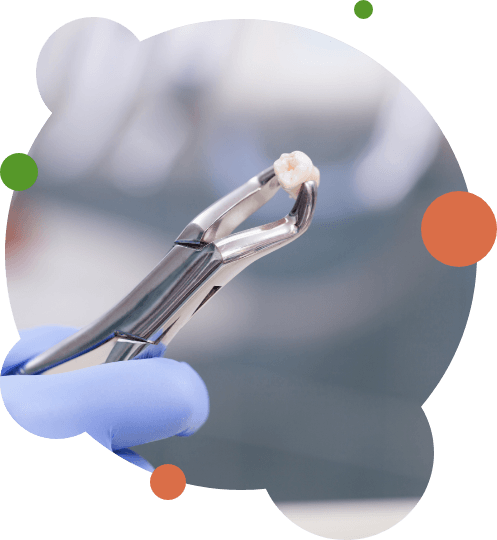
After the extraction procedure, you will receive post-op instructions to help you recover with minimal discomfort. To ensure your mouth heals properly, be mindful of these aftercare tips:
- Drink plenty of water and get some rest to promote healing
- Use a cold compress on the outside of your mouth to manage pain and swelling
- Do not drink out of a straw
- Avoid hard, crunchy foods for the first few days
- Eat soft foods like rice, pasta, eggs, yogurt, and applesauce
- Take prescribed antibiotics and pain medications to alleviate discomfort
- Brush and floss carefully around the surgical site to keep it clean
- After 24 hours, rinse with warm salt water to disinfect the site
- Avoid strenuous activity for at least two days
Understanding the Cost of Tooth Extractions

While removing a tooth is typically done as a last resort, sometimes keeping one in your smile isn’t always a viable option for your oral health. Even if a tooth extraction is necessary for preserving your other pearly whites, it’s natural to want to know as much as possible about the overall cost of your procedure. Our team understands the importance of undergoing the treatment you need without having to empty your wallet in the process. Read on to learn several things you should know about the cost of tooth extraction in Plano.
Factors That Can Affect Tooth Extraction Cost
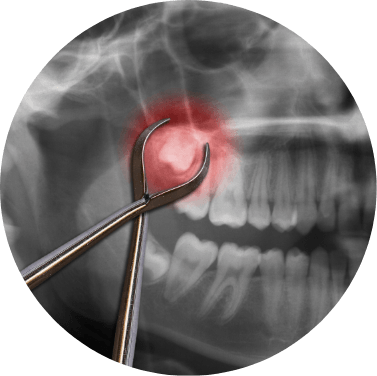
The exact cost of tooth extraction will vary from patient to patient. We won’t be able to provide you with a precise estimate until we’ve thoroughly examined your mouth and detected the root of the problem. During your visit, our team will assess your situation and decide the best way to address it. Some of the factors you can expect us to consider when determining the cost include the following:
- The number of teeth: The more teeth you need to get removed, the higher the overall treatment cost.
- The location of your teeth: The type and position of your tooth can also impact the overall price of your procedure.
- The complexity of your dental case: Depending on the complexity of your tooth extraction procedure (and the sedation therapy you undergo), your treatment can range from $125 to $650.
Does Dental Insurance Cover Tooth Extractions?
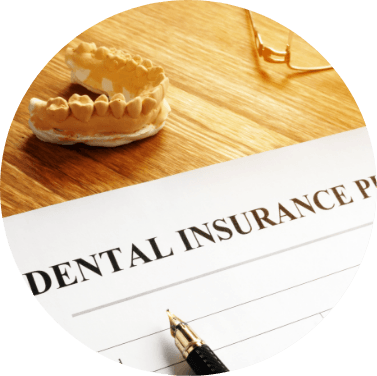
Most dental insurance companies will typically offer coverage for approximately half the cost of tooth extraction after you’ve met your annual deductible. That said, there are often limits in place to cover just a certain number of pearly whites, or also a waiting period before your benefits will kick in. Every insurance plan is different, however, so you’ll want to double-check with your provider about the details of your policy before paying for any treatments. The last thing you want is to be surprised when it comes to paying your bill. You can also speak with our friendly and knowledgeable team if you need help navigating your insurance plan so that you can make the most of your benefits!
How to Make Tooth Extractions Affordable

Even if you don’t currently have dental insurance, it isn’t the only way to make your procedure more manageable. Our team offers alternative financing options via an in-office discount plan, where you can pay significantly less for preventive and restorative procedures with one low annual fee. We’re also partnered with CareCredit—a third-party financier who can offer plans that help split up the cost of your dental treatments into monthly installments with little to no interest. You’ll be able to undergo the necessary procedures to preserve your pearly whites without having to break the bank.
Tooth Extraction FAQs
Does Getting a Tooth Extracted Hurt?
Many patients are hesitant to schedule their tooth extraction in Plano because they’re worried the procedure will hurt. Rest assured – it’s not as bad as you may think! Whether you’re getting one tooth pulled or multiple, Dr. Antoon will make sure your mouth is fully numb before moving forward with the extraction. It’s completely normal to experience mild soreness and discomfort following your procedure. Luckily, it’s easily manageable by diligently following your aftercare instructions and taking your medication as directed.
Can I Leave the Space Empty After a Tooth Extraction?
Some people may not see the point in replacing a pulled tooth, especially if it’s towards the back of the mouth. However, your teeth do so much more than create a beautiful smile, which is why it’s incredibly important to replace any missing ones. Even one missing tooth can make it difficult to chew, leading to poor nutrition and indigestion. It can also make it harder to speak, causing you to develop a mild lisp or another speech impediment. Once you’re all healed up from your extraction, it’s strongly recommended that you explore your tooth replacement options.
What Can I Do to Speed Up the Healing Time?
Getting plenty of rest is the most important thing to do after a tooth extraction in Plano. You should avoid exercising or doing strenuous activity for at least 24 hours. While you sleep, keep your head elevated. A dry socket is a painful complication that can delay the healing process, which is why you must do what you can to avoid it. To that end, you should avoid spitting or using a straw as it can dislodge the forming blood clot on your surgical site. Use a cold compress on the outside of your cheek to reduce swelling and discomfort. Make sure you take your prescribed or over-the-counter pain medications as instructed as well!
How Should I Prepare for My Tooth Extraction?
Preparing for your tooth extraction in Plano is just as important as diligently following your aftercare instructions. Before the procedure, make sure you ask Dr. Antoon what to bring and what to eat the morning of. He may provide specific instructions, like drinking only water in the morning or picking up prescription medication beforehand. You may also have to ask a trusted individual to drive you home after the procedure since you’ll most likely receive local or general anesthesia.

